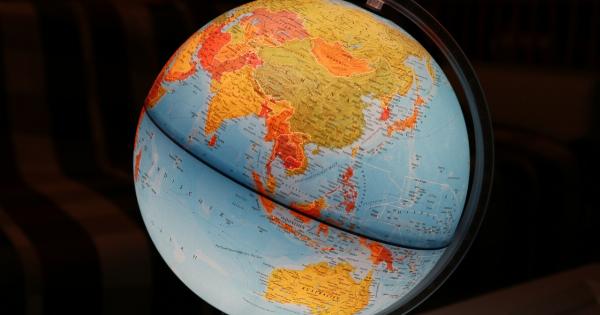Globalization refers to the increasing interconnectedness and interdependence of countries through the exchange of goods, services, ideas, and information.
It has brought significant changes to various aspects of society, including the economy, culture, and the environment. However, one of the major consequences of globalization is the impact it has on pollution levels worldwide. This article explores the effects of globalization on pollution, highlighting both the positive and negative aspects of this global phenomenon.
The Link Between Globalization and Pollution
Globalization has undoubtedly contributed to a significant increase in pollution levels worldwide.
As countries engage in global trade, they often prioritize economic growth and profit maximization, neglecting the environmental costs associated with production and consumption. Industrial activities, especially in developing countries, have significantly intensified due to globalization, leading to an increase in greenhouse gas emissions, air pollution, and water contamination.
Industrialization and Manufacturing
One of the key drivers of pollution in the era of globalization is the rapid industrialization and manufacturing expansion.
As companies seek to capitalize on cheap labor and lower production costs in developing countries, they often establish manufacturing facilities in areas with lax environmental regulations. These facilities release large amounts of pollutants into the air, water, and soil, contributing to the deterioration of environmental quality.
Transportation and Global Supply Chains
Globalization has also fueled an exponential growth in transportation, especially the movement of goods across continents. The extensive use of fossil fuels in ships, airplanes, and trucks contributes to air pollution and greenhouse gas emissions.
Additionally, the increased distance traveled by products in global supply chains leads to higher energy consumption and pollution associated with transportation.
Deforestation and Land Degradation
Another significant impact of globalization on pollution is the acceleration of deforestation and land degradation.
In order to meet the growing demand for resources, including timber, minerals, and agricultural products, countries often engage in unsustainable land exploitation. Deforestation not only leads to the release of carbon dioxide, but it also disrupts ecosystems and contributes to biodiversity loss.
Positive Aspects of Globalization on Pollution
While globalization has primarily been associated with negative effects on pollution, it is important to acknowledge that it has also brought about some positive changes.
For instance, advancements in technology and knowledge transfer have resulted in the development of cleaner and more efficient production processes. Many multinational corporations have implemented sustainable practices, reducing their carbon footprint and pollution output.
International Collaboration and Environmental Regulations
Globalization has facilitated international collaboration and the sharing of best practices in environmental protection and regulation.
Organizations like the United Nations and the World Trade Organization have played a crucial role in shaping agreements and policies aimed at reducing pollution levels. Through these collaborations, countries are encouraged to adopt stricter environmental regulations, limiting pollution in industries.
Shift Towards Renewable Energy
As concerns about climate change intensify, global efforts to combat pollution have led to a shift towards renewable energy sources.
This transition has been largely supported by globalization, as countries collaborate in research and development to find sustainable alternatives to fossil fuels. The globalization of the renewable energy sector has facilitated the adoption of clean technologies worldwide, reducing reliance on polluting energy sources.
Challenges and Criticisms
Despite the positive aspects, there are challenges and criticisms surrounding the role of globalization in pollution reduction. Critics argue that the race for economic growth and competitiveness often takes precedence over environmental sustainability.
Additionally, inequalities in the distribution of resources and benefits of globalization may hinder efforts to address pollution effectively. Developing countries, in particular, may face difficulties in implementing stringent environmental regulations due to economic constraints.
Conclusion
Globalization has undeniable implications for pollution levels worldwide.
While it has contributed to a significant increase in pollution through industrialization, manufacturing, and transportation, globalization has also played a crucial role in fostering international collaboration and promoting cleaner technologies. To mitigate the negative effects of globalization on pollution, it is imperative for countries to prioritize environmental sustainability in their policies and practices.
Only through concerted efforts can globalization and pollution reduction go hand in hand, ensuring a more sustainable and cleaner future for all.






























